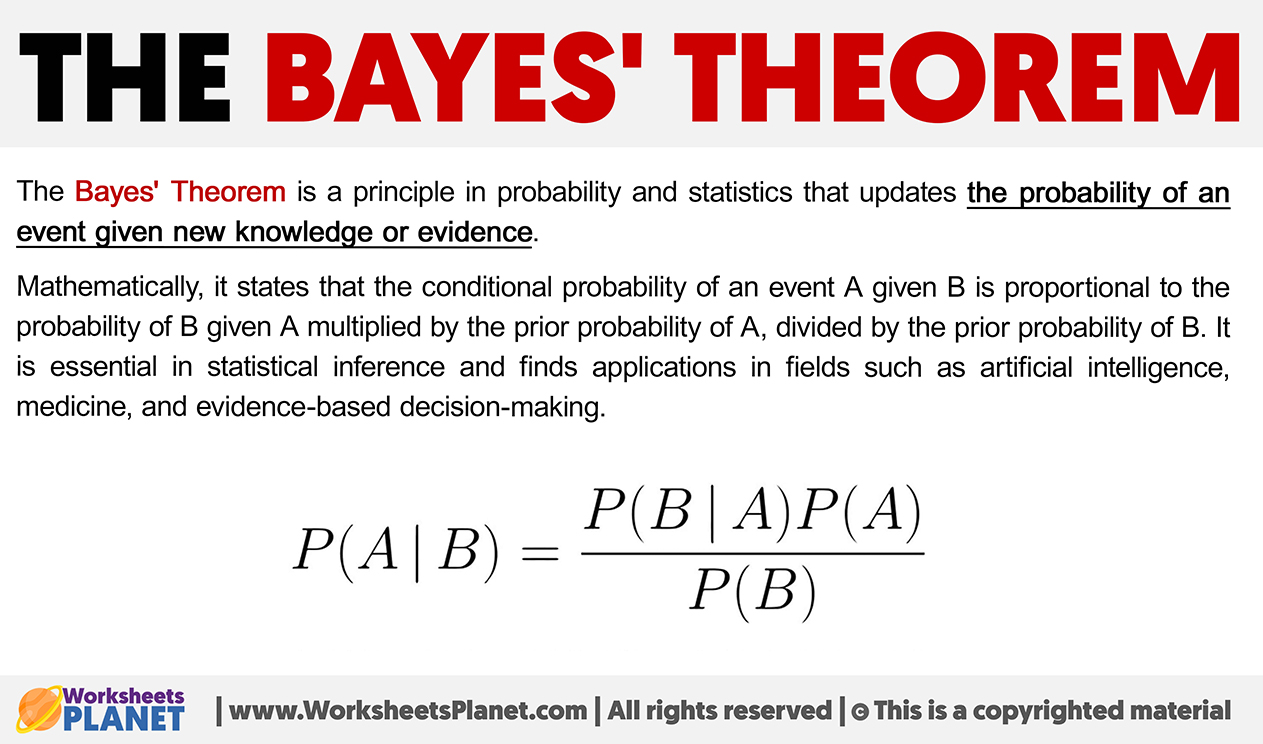The Bayes’ Theorem is a principle in probability and statistics that updates the probability of an event given new knowledge or evidence.
Mathematically, it states that the conditional probability of an event A given B is proportional to the probability of B given A multiplied by the prior probability of A, divided by the prior probability of B.
It is essential in statistical inference and finds applications in fields such as artificial intelligence, medicine, and evidence-based decision-making.


